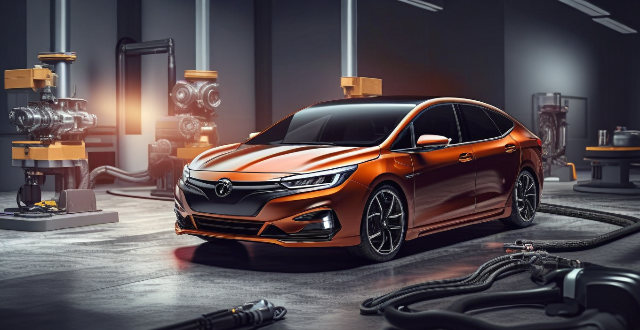This text discusses the maintenance requirements for gasoline hybrid cars, which combine a conventional engine with an electric motor for added efficiency. While these vehicles do not require extensive special maintenance, there are specific components that need attention. Regular maintenance such as oil changes, tire rotations, brake checks, and air filter replacements are still essential. Additionally, hybrid-specific maintenance includes monitoring battery health, checking the regenerative braking system, ensuring proper cooling of the electric motor, and maintaining transmission fluid levels. It is important to refer to the vehicle's owner's manual for specific maintenance schedules and seek out professional service when needed. By addressing both conventional and hybrid-specific maintenance needs, gasoline hybrid cars can run reliably and efficiently.

Do Gasoline Hybrid Cars Require Special Maintenance?
Gasoline hybrid cars, also known as mild hybrids or self-charging hybrids, are vehicles that combine a conventional gasoline engine with an electric motor for added efficiency. These vehicles offer the benefits of improved fuel economy and reduced emissions without the need for external charging like their plug-in counterparts. However, the question remains: do these hybrid vehicles require special maintenance? Let's delve into the details.
Regular Maintenance
Oil Changes
- Frequency: Check your owner's manual for oil change intervals specific to your vehicle.
- Type: Use the type of oil recommended by the manufacturer.
Tire Rotation and Balancing
- Importance: It helps ensure even wear and extends tire life.
- Schedule: Follow the manufacturer's guidelines or have it done every 5,000 to 7,000 miles.
Brake System Checks
- Inspection: Regularly inspect brake pads, rotors, and calipers for wear.
- Fluid: Check brake fluid levels and replace if necessary.
Coolant System
- Antifreeze: Ensure the right mix of antifreeze and water.
- Leaks: Monitor for any signs of leakage.
Air Filter Replacement
- Purpose: A clean air filter improves engine performance and fuel efficiency.
- Frequency: Replace according to the manufacturer's recommendations or when it appears dirty.
Spark Plugs
- Longevity: Spark plugs generally last longer in hybrids due to the electric motor assisting the gas engine.
- Checkups: Have them checked during regular service intervals.
Hybrid-Specific Maintenance
Battery Health
- Monitoring: Most hybrids have a system to monitor battery health. Pay attention to any dashboard warnings.
- Lifespan: The battery in a hybrid is designed to last the lifetime of the vehicle but may need replacement after many years.
Regenerative Braking System
- Function: This system captures energy normally lost during braking.
- Maintenance: Generally low-maintenance, but should be checked if you notice reduced braking efficiency or a dashboard warning.
Electric Motor Cooling
- System Checks: Ensure the cooling system for the electric motor is functioning properly to prevent overheating.
- Signs of Trouble: Keep an eye out for temperature warning lights on your dashboard.
Transmission Fluid
- Importance: Proper fluid levels are crucial for smooth operation.
- Service: Have the fluid checked and replaced as per the manufacturer's schedule.
Additional Tips
Manufacturer Guidelines
- Manual: Always refer to your vehicle's owner's manual for specific maintenance schedules and recommendations.
- Alerts: Pay attention to any alerts or warning messages displayed on your dashboard.
Professional Service
- Expertise: Seek out a mechanic or dealership with experience in servicing hybrid vehicles.
- Diagnostic Tools: They will have the necessary tools to diagnose any issues specific to hybrid systems.
In conclusion, while gasoline hybrid cars do not require extensive special maintenance, they do have components that are unique to their operation. Regular maintenance is still essential, and it's important to pay attention to both conventional vehicle needs and the specific requirements of the hybrid system. By following the manufacturer's guidelines and addressing any concerns promptly, you can ensure that your gasoline hybrid car runs reliably and efficiently.